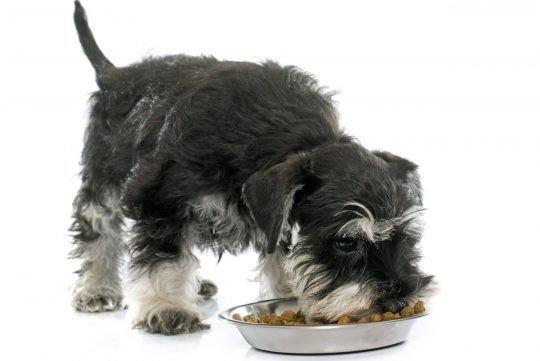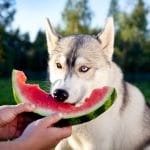
Why is Human Food Bad for Dogs?

What Human Foods are Toxic to Dogs?
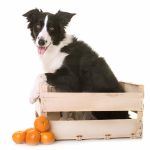
Can Dogs Eat Fruit?
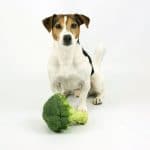
Can Dogs Eat Vegetables?
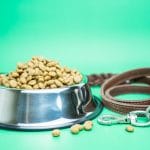
Can Dogs Eat Dried Fruits or Nuts?
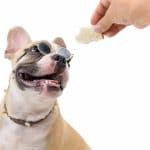
Can Dogs Eat Bread or Cheese?

Can Dogs Eat Pork or Raw Meat?

Can Dogs Eat Eggs?

Can Dogs Eat Chocolate?
Why is Human Food Bad for Dogs?
Foods that are safe for human consumption may be poisonous for your dog.
Feeding them your food could result in a severe threat to their long-term health and wellbeing.
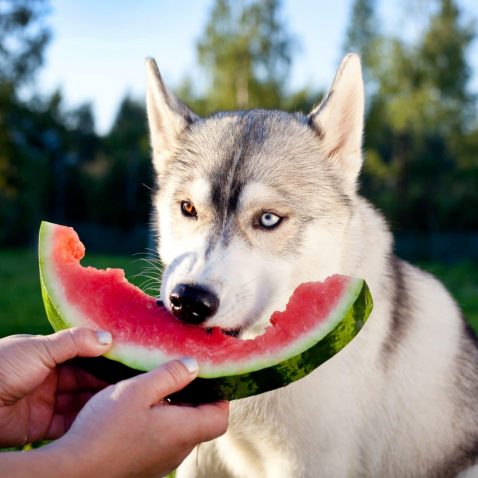
So What Foods Are Toxic To Dogs?
Humans and dogs have different metabolism rates, therefore breaking down and converting the energy from human food could be a lethal factor on your dog’s digestive health.
If you’re unsure about a food that’s not included in our list, always make sure that you do your thorough research before feeding it to your dog.
If in doubt, leave it out!
Human Snacks
You may love snacking on your potato chips, but your dog doesn’t have to. Chips contain garlic and onion powder, which are both canine toxins.
The cookies you’re chowing down may contain dangerous ingredients like raisins, chocolate, and macadamia nuts.
Sweeteners
Chewing gum, toothpaste, and baked goods, (especially those as sugar-free) can contain a compound called Xylitol.
Xylitol can increase insulin production in the body and can cause liver failure.
This toxicosis can present itself as lethargy, vomiting, and impaired motor function.
If you believe your dog has ingested any products that contain artificial sweeteners, please seek urgent medical advice.
Leftovers
Last night’s take-out is convenient for humans but terrible for dogs.
Let’s face it, it’s unlikely that you’re going to gain any nutritional benefits from those fries, don’t pass on the bad habit!
If you MUST give them scraps, make sure to remove any bones.
Dogs can choke on bones that become lodged whilst eating or even severely injure them by piercing their digestive tract should the bone splinter.
Old Food
The bacteria in old food contains toxins that are damaging to your dog, feed them the freshest and most nutritious dog food only.
What Human Foods are Toxic to Dogs?
Below I will include a list of foods that frequently cause dog owners anxiety.
As I said earlier, if you’ve fed something to your dog that you’re now not sure about, contact your vet immediately.
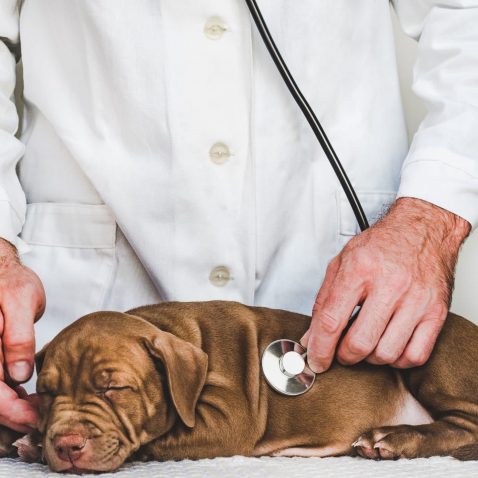
The below list is by no means exhaustive but does contain the most common foods dog owners question the safety of:
- Fruit
- Vegetables
- Dried fruits or nuts
- Bread or cheese
- Pork or raw meat
- Eggs
- Chocolate
All of the below chapters contain a brief breakdown of if the relevant foodstuff is edible for dogs and any associated health problems that can be caused by consumption.
Can Dogs Eat Fruit?
Possibly! In short, it depends on the type of fruit and the way the fruit is then prepared.
Below is a breakdown of some of the most common fruits and their corresponding edibility and harmfulness.
If you wish to know about a fruit that is not listed below, it is advised that you seek advice from a veterinary practitioner prior to trying to feed it to your dog.
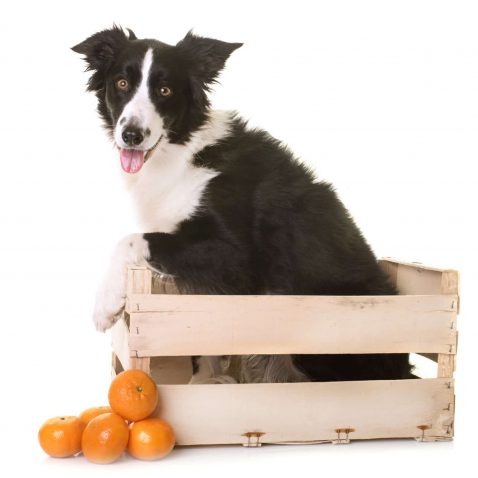
Can Dogs Eat Bananas?
Some veterinarians suggest bananas as a healthy alternative to salty dog treats.
Bananas are high in potassium, vitamin C, and B6, which is great if your dog is experiencing gastrointestinal problems.
Also, magnesium promotes bone growth and encourages the body to absorb vitamins and produce protein.
However, bananas contain a lot of sugar, therefore you should only feed them in moderation.
Can Dogs Eat Watermelon?
Watermelons are full of vitamins and nutrients which are fantastic for your dog’s health, they’re also refreshing on hot days.
However, too much watermelon can cause your dog to experience tummy ache and gastrointestinal upset.
One or two seeds might not make a difference, but too many seeds can cause a blockage in the digestive tract. Ingesting seeds could be more dangerous for smaller dogs.
The rinds aren’t safe to eat because it’s firm and difficult to chew, potentially resulting in an intestinal blockage,
If your dog has consumed the rind or seeds and you can see the signs of vomiting, constipation or lethargy, contact your vet immediately.
Look out for the signs intestinal blockage for at least 24 hours after consumption.
Can Dogs Eat Oranges?
Oranges are not dangerous, however, it is recommended that you do not feed your dog more than two segments a day.
Oranges, tangerines, and clementines aren’t toxic to dogs; however, they’re high in sugar and can cause gastrointestinal upset.
Can Dogs Eat Avocado?
Avocados contain Persin, which can cause diarrhea, heart congestion, and vomiting.
The most dangerous part of an avocado is the pit because it’s full of Persin and it’s a choking hazard.
If your dog has ingested a small amount of avocado, don’t panic. However, if your dog starts to display signs of sickness or chest pain, contact your vet.
Can Dogs Eat Peaches?
Peaches are safe for dogs to eat in minimal amounts but are not without risk. The pit of a peach contains cyanide which is poisonous to dogs and can be fatal within minutes of consumption. Common symptoms of cyanide poisoning in dogs include excess saliva, difficulty breathing, paralysis, and reddening of the gums and teeth.
The pit itself can also break teeth and pierce the soft roof of dogs mouths, so it is advised to remove the centers of all peaches before feeding to your dog.
Can Dogs Eat Tomatoes?
Ripe tomatoes are nontoxic to dogs and can be given in small quantities as an occasional snack. Unripe tomatoes and tomato plants should be avoided because they contain components that are harmful to dogs.
Solanine is a poisonous substance that is found in the stem and leaves because it’s mostly concentrated in the green parts of the tomato plant.
If your dog consumes the green parts of a tomato plant, watch them for signs of tomatine poisoning.
Signs to look out for are loss of coordination, muscle weakness, tremors, seizures, cardiac effects, and GI upset.
Fortunately, these symptoms are rare. If your dog exhibits the above signs, call your vet as they could be a symptom of other serious health problems.
Can Dogs Eat Vegetables?
This depends on the type of vegetable in question!
Some vegetables will make a safe, nutritious and healthy snack for your dog.
Others will be extremely dangerous and should not be given.
Below is a brief guide to some of the most prominently asked about vegetables, read on to find out which ones are safe.
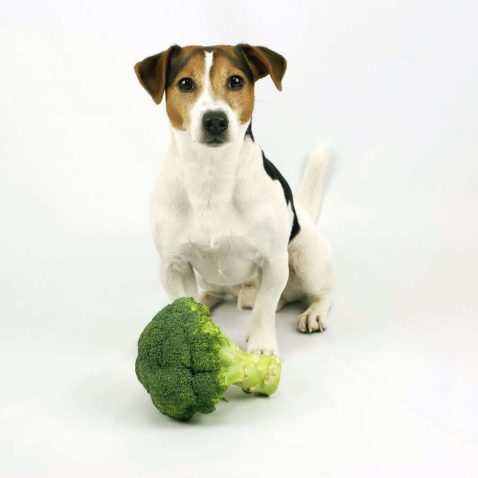
Can Dogs Eat Broccoli?
Dogs can eat cooked and raw broccoli as long as there’s no added seasonings or oils.
Brocolli should be fed in small quantities because the florets contain Isothiocyanates, which can cause gastric irritation.
It’s essential to monitor your dog to see how they react to new food items because some dogs might react stronger to broccoli than others.
If you have a small dog, it’s important to make sure that you cut the broccoli into bite-size chunks.
Small bites make it easier for you to measure the amount that your dog consumes.
Can Dogs Eat Carrots?
Carrots are a nutritious, healthy snack that can provide dogs with a great source of fiber, antioxidants, and vitamin A.
One point to remember, however, is that carrots can be a choking hazard. This being the case, it is vital to cut carrots into chunks or sticks to avoid choking.
Can Dogs Eat Garlic?
Many people ask the question “is garlic bad for dogs?” and the answer is a definite yes!
Garlic is a member of the onion family and as such contains compounds that are incredibly toxic to dogs.
Garlic is particularly toxic being on average five times as potent as onions.
Garlic poisoning can take several days to display symptoms but can cause lethargy, weakness, gastroenteritis, and in severe cases, serious damage to red blood cells.
Can Dogs Eat Potatoes?
Raw potatoes contain solanine a substance that is toxic to some dogs and should never be given.
Potatoes can be provided if baked or boiled as this reduces the levels of solanine to acceptable levels and should have no ill effects on your dog.
Can Dogs Eat Dried Fruits or Nuts?
While nuts and almonds are healthy for dogs to eat in moderation, there is growing evidence that grapes and raisins may be linked to serious illness in dogs.
For more information on the pros and cons for nuts, almonds, and grapes please read the below breakdown to alleviate any concerns you may have.
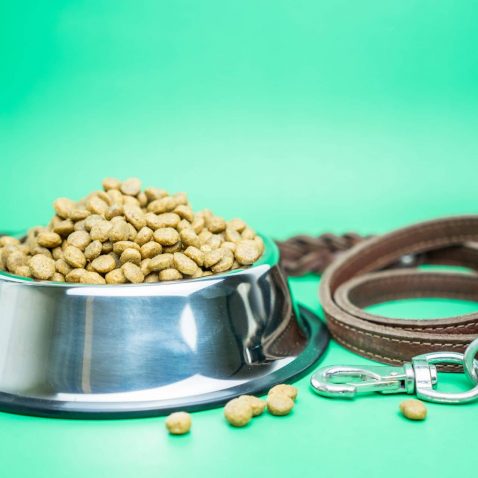
Can Dogs Eat Almonds?
Almonds can cause obstruction hazards to dogs because they don’t chew their foods like humans do.
If the almond is swallowed whole, it could lead to life-threatening blockages of the stomach, esophagus, and windpipe if consumed by smaller dogs.
Additionally, like most packaged nuts, almonds are salted and can cause increased water retention.
Dogs receive little nutritional benefits from almonds; therefore, there are better options for a treat.
Can Dogs Eat Grapes or Raisins?
There have been multiple cases in which eating grapes/ raisins have caused kidney failure in dogs.
Testing for toxic compounds have been inconclusive so far, but until more information has been discovered, it is advised that dogs avoid both grapes and raisins.
Can Dogs Eat Peanuts?
Peanuts are safe and edible for dogs but do contain a high-fat content so should be given in moderation.
Can Dogs Eat Bread or Cheese?
Many people don’t realize that although bread is safe to eat raw bread dough is definitely not! Below is a brief explanation as to why this is the case.
Always remember though, like humans dogs are susceptible to allergies and wheat intolerance and being fed bread can cause some distressing side effects for your dog.
Similarily cheese can be a delicious, nutritious snack for your dog but beware any intolerance that your pet may have as it could cause stomach upsets!
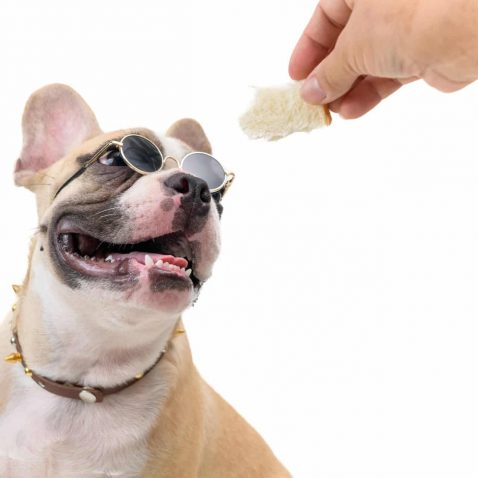
Can Dogs Eat Bread?
Feeding a dog bread shouldn’t come with any harmful side effects unless your dog has any allergies or a particularly sensitive digestive system.
If your dog does have a wheat intolerance, it is advised that you avoid feeding them bread as this may cause stomach upsets, vomiting, and diarrhea.
Raw bread dough though can be harmful to dogs as this contains a small amount of alcohol.
Alcohol is extremely poisonous to dogs and can have adverse side effects even in small amounts.
Alcohol, in any form, should never be given to dogs.
Signs of alcohol poisoning include shaking, seizures, vomiting, and strokes.
Alcohol poisoning can be fatal to dogs and if you believe your dog to have ingested any alcohol please contact your vet for further advice.
Can Dogs Eat Cheese?
Dairy products such as cheese can upset your dog’s digestive system, especially if given in large quantities or if your dog is lactose intolerant.
Cottage cheese, however, is high in calcium and protein and can make an excellent addition to dog food.
Can Dogs Eat Pork or Raw Meat?
Eating pork safely is concerning for humans as it is common knowledge if prepared incorrectly it can cause food poisoning.
Dog owners frequently wonder if dogs can eat pork as they can be susceptible to the same stomach troubles as humans.
Additionally, while pork can be tricky to prepare for your dog, an accompanying question would be can dogs be fed raw meat?
Read below to find out the answer to this common question.

Pork in and of itself is not harmful to dogs. Like all meats, if prepared correctly, pork can be a positive addition to any dog’s diet.
The problem occurs when dogs are given raw or uncooked meat.
Whilst feeding your dog raw meat might seem like a natural option, due to the biological differences between domestic and wild dogs; this is not encouraged.
Raw meat can contain harmful bacteria such as Salmonella and E. coli and can be extremely dangerous to domestic animals.
Symptoms of Salmonella and E. coli poisoning can include vomiting, fever, and in extreme cases, death.
Can Dogs Eat Eggs?
Eggs can be another source of concern for dog owners, however as the explanation below states “eggs make an excellent addition to any dog’s diet”.
Read on to find out the best way of preparing eggs.
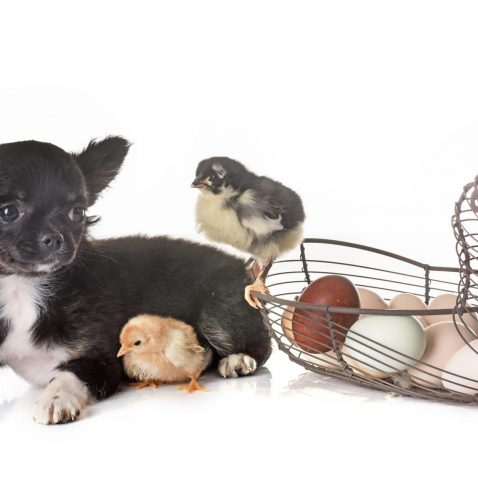
As with raw meat, raw eggs can contain Salmonella and E. coli and therefore must not be eaten. However cooked eggs are an excellent source of protein and make an excellent addition to any dog’s diet.
Along with being cheap and easy to prepare, eggs contain many essential amino acids that encourage good health.
Eggs do have a high-fat content and should be given in moderation to avoid any associated health issues such as obesity, diabetes, and poor circulation.
Can Dogs Eat Chocolate?
The answer to this is a definite NO!
The reasons that you should never feed a dog chocolate are listed below, please read as chocolate is deadly to dogs and is a common cause of concern for dog owners.

Chocolate, along with coffee contains methylxanthines which are an extremely toxic compound that can be fatal to dogs. The darker the chocolate, the more caffeine and theobromine it contains and the more dangerous it is to your dog.
Symptoms of chocolate/ caffeine poisoning can include vomiting, diarrhea, irregular heartbeat, seizures, and death.
If you believe your dog has ingested chocolate or caffeine, please seek medical advice immediately.
Summary
Hopefully, this article answers the question “What foods are toxic to dogs.”
Dogs require a varied, nutritious, and balanced diet for them to achieve optimal health.
The above list of foods can be hazardous to a dog’s health, and whilst some may be given in moderation when feeding your dog, every choice needs to be carefully considered.
In the event of any adverse or negative side effects that come from a dog’s diet, please seek medical/ veterinary advice as soon as possible.
It is also important to remember that the accidental ingestion of any of the above foods can occur in the home, on walks or when traveling; therefore dogs must be closely monitored to avoid this where possible.
If a dog does ingest any toxic or poisonous foodstuffs, please be aware that not all symptoms appear immediately and medical advice should be sought as a precaution in any event.
When seeking medical advice (and where possible), it is always beneficial to be able to give the vet a thorough breakdown of what the dog has eaten and what ingredients have been specifically ingested as this may affect the type of treatment provided.
Following the above advice will hopefully ensure that your dog remains happy and healthy but will also save you from having to pay out on those costly vets bills!
Share the Love
If you found this post useful, please let others know about it by sharing it.
